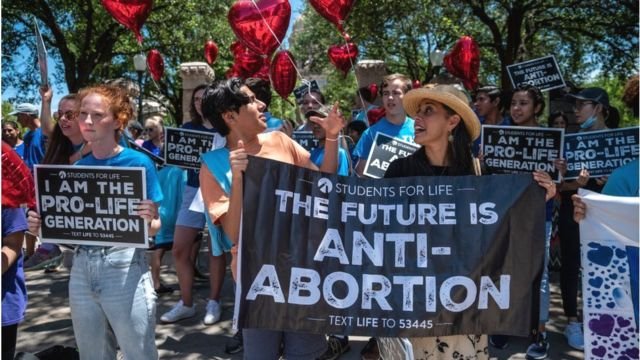Introduction:
In a significant turn of events, the Texas Supreme Court has reversed a ruling that could have provided an avenue for pregnant women to seek emergency abortions under the state’s stringent abortion restrictions. This decision adds another layer of complexity to the ongoing debate over reproductive rights and access to abortion in Texas.
The Texas Abortion Ban:
Texas implemented one of the most restrictive abortion laws in the United States, known as Senate Bill 8 (S.B. 8), which came into effect in September 2021. This law prohibits most abortions once cardiac activity is detected, typically around six weeks into pregnancy, often before many individuals are even aware they are pregnant. What sets S.B. 8 apart is its unique enforcement mechanism, allowing private citizens to sue anyone involved in an abortion, including those providing or aiding the procedure.
The Reversed Ruling:
The recent ruling by the Texas Supreme Court pertains to a case where a lower court had initially granted a pregnant woman the right to obtain an emergency abortion. The lower court’s decision had raised hopes for reproductive rights advocates who sought to challenge the stringent provisions of S.B. 8. However, the Texas Supreme Court’s reversal dashes these hopes and reinforces the uphill battle for those advocating for expanded access to abortion services.
Impact on Reproductive Rights:
This decision further limits the options available to women facing unwanted pregnancies in Texas. With the six-week cutoff and the threat of private citizens filing lawsuits, the already challenging landscape for abortion access becomes even more restrictive. The ruling underscores the ongoing struggle between those seeking to protect reproductive rights and those advocating for more stringent abortion regulations.
Legal and Activist Responses:
Reproductive rights activists and organizations are likely to respond with renewed vigor, using this setback as motivation to continue challenging restrictive abortion laws in Texas. Legal experts anticipate that the legal battle over S.B. 8 will persist, possibly reaching higher courts and, ultimately, the Supreme Court.
The decision also highlights the importance of federal efforts to safeguard reproductive rights. Advocates are urging Congress to pass legislation, such as the Women’s Health Protection Act, aimed at protecting abortion rights and ensuring access to reproductive healthcare across the country.
Public Opinion and Political Ramifications:
The Texas abortion ban has been a polarizing issue, with public opinion divided along ideological lines. The recent ruling is expected to reignite discussions about the role of state legislatures in regulating reproductive rights and the need for federal intervention to establish a uniform standard.
Conclusion:
The Texas Supreme Court’s decision to overturn the ruling allowing emergency abortions deals a blow to reproductive rights in the state. As the legal and political battles continue, the fate of abortion access in Texas remains uncertain, leaving many to closely watch for further developments in this ongoing and contentious debate.
